The Quiet Collapse: Why America’s Economy Is Slowly Breaking From Within
Tariffs as taxes, rotting harvests, empty tourist spots and eroding trust — while the White House boasts of prosperity, the foundations are quietly cracking.
For years, the warning signs were easy to ignore. The US economy looked strong on paper, but paper is thin. Beneath the headlines and political spin, fractures have been spreading. Tariffs disguised as patriotic policy have become political weapons. Once-booming agricultural exports are piling up with no buyers. Tourists, wary of hostility and invasive policies, are staying away. And global markets, once anchored to the dollar, are exploring safer shores. What’s happening is not a crisis in the traditional sense — it’s something worse. This is stagnation and slow decay, and it’s entirely self-inflicted.
The United States economy is not spiraling. Spiraling suggests motion, suggests turbulence. What’s happening now is quieter, slower — and far more dangerous. It’s stagnation and internal corrosion, hidden behind layers of political messaging, selective data points and outright denial. But under the surface, pressure is building. In recent weeks and months, the evidence has become impossible to ignore.
Much of this begins and ends with tariffs — or, more accurately, tariffs used not as policy, but as politics. Once seen as a tool to protect domestic industries or punish unfair trade, they are now openly brandished as political weapons. Companies deemed “loyal” can apply for exemptions. Those who fall afoul of the administration’s favor? Punished. The result is not strength but uncertainty. Tariffs are, after all, taxes — and those taxes are paid not by foreign governments, but by American consumers. Every subsidized farm and tariffed widget echoes through the economy as dollars drained from pockets and balance sheets. Subsidies? Also taxes. Just more creatively hidden.
But trade wars don’t happen in a vacuum. Countries adapt. China has, aggressively. Years of US antagonism pushed Beijing towards Brazil, now its near-exclusive partner in soybean production. Together, they have effectively shut the US out of one of its biggest agricultural export markets. The fallout? Massive overproduction of soybeans and corn, much of it already rotting in silos or being dumped at record losses. Domestic demand can’t absorb the surplus. Prices crash, farms teeter on the edge of bankruptcy — all while subsidies barely plug the gap. This isn’t market correction. It’s collapse in slow motion.
And that’s just what can be measured. Beyond spreadsheets, there’s something harder to quantify but equally destructive: the collapse of trust. Tourists — once the silent, reliable booster of local economies — are staying away. The reasons are complex but all converge on one thing: fear. Fear of invasive border searches. Fear of being profiled. Fear of saying the wrong thing and being barred from entry or, worse, detained. Once that perception takes hold, it metastasizes. A nation perceived as hostile isn’t a destination. It’s a warning.
Read more: What Happens to a Country Without Visitors?
Currency markets notice too. The dollar, once unassailable as the world’s reserve currency, now looks shakier. It’s not about immediate collapse — that won’t come overnight — but about a shift in sentiment. As Europe quietly strengthens its own systems and trade networks realign, the euro becomes more attractive to some. Even small shifts matter. Global finance is built on trust. Lose that, and cracks spread quickly.
Meanwhile, the administration clings to contradictions. Peace deals signed one day, weapons shipments the next. Tariffs imposed and then arbitrarily lifted. Deals with Ukraine announced, though most of the minerals lie in Russian-held territory. The global audience sees this — and quietly begins to hedge. The rhetoric is loud. The movement away from US leadership is louder still, even if whispered.
What makes this all the more alarming is not that America faces hardship. That’s cyclical. What makes it unique — and perilous — is that it’s self-inflicted. The world did not impose this on Washington. It was chosen, layer by layer, press release by press release, in the pursuit of short-term wins and political theater.
The collapse, then, may not come with fireworks or flashing headlines. It may come exactly as it has begun: quietly, with empty shelves in forgotten towns, with cargo sitting unsold on docks, with tourists choosing other shores, and with allies drafting trade deals that no longer assume Washington’s centrality. The end of empire is rarely announced. But sometimes, if you listen closely enough, you can hear the hum of its beginning.
/Mattias@BadBlueprint
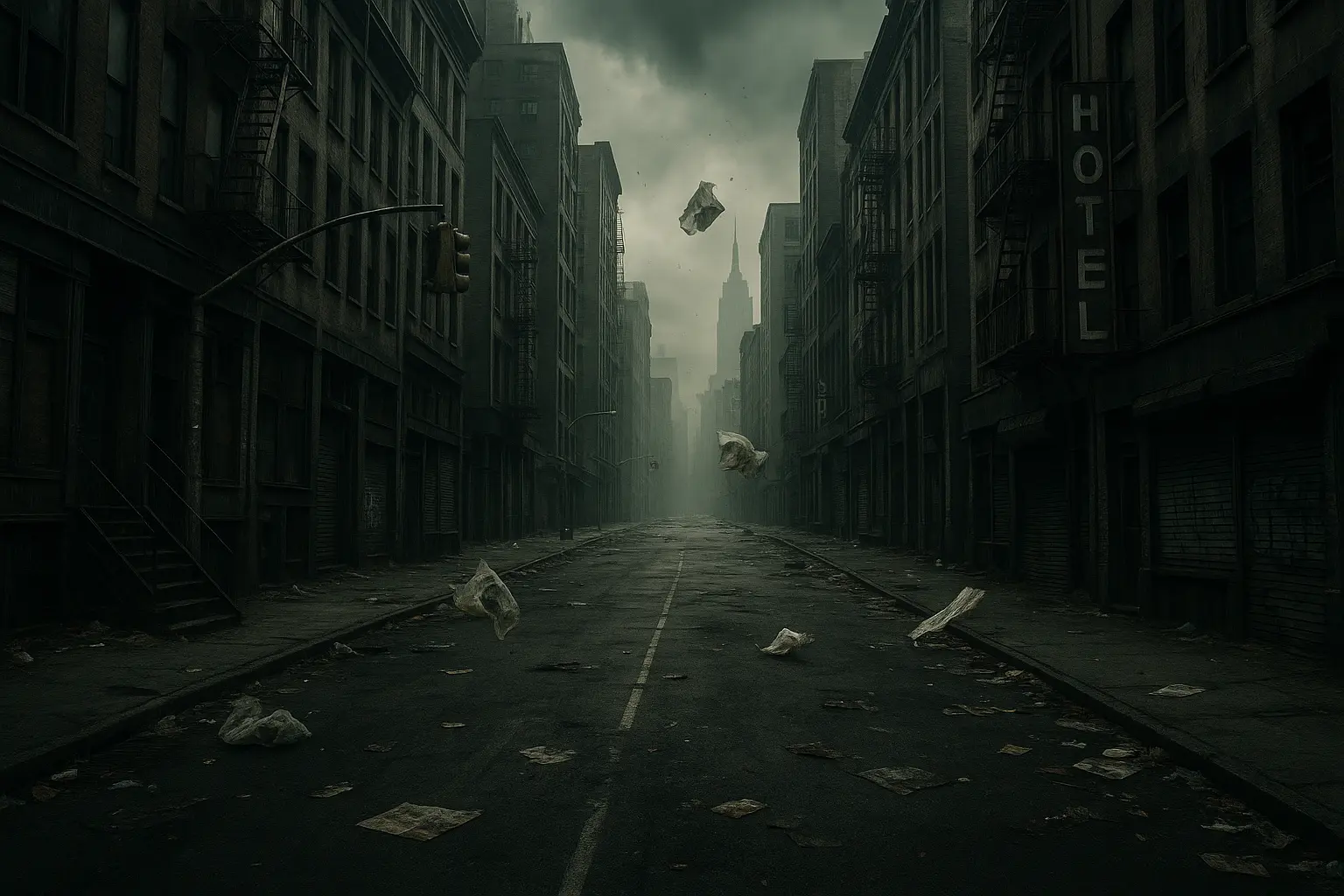
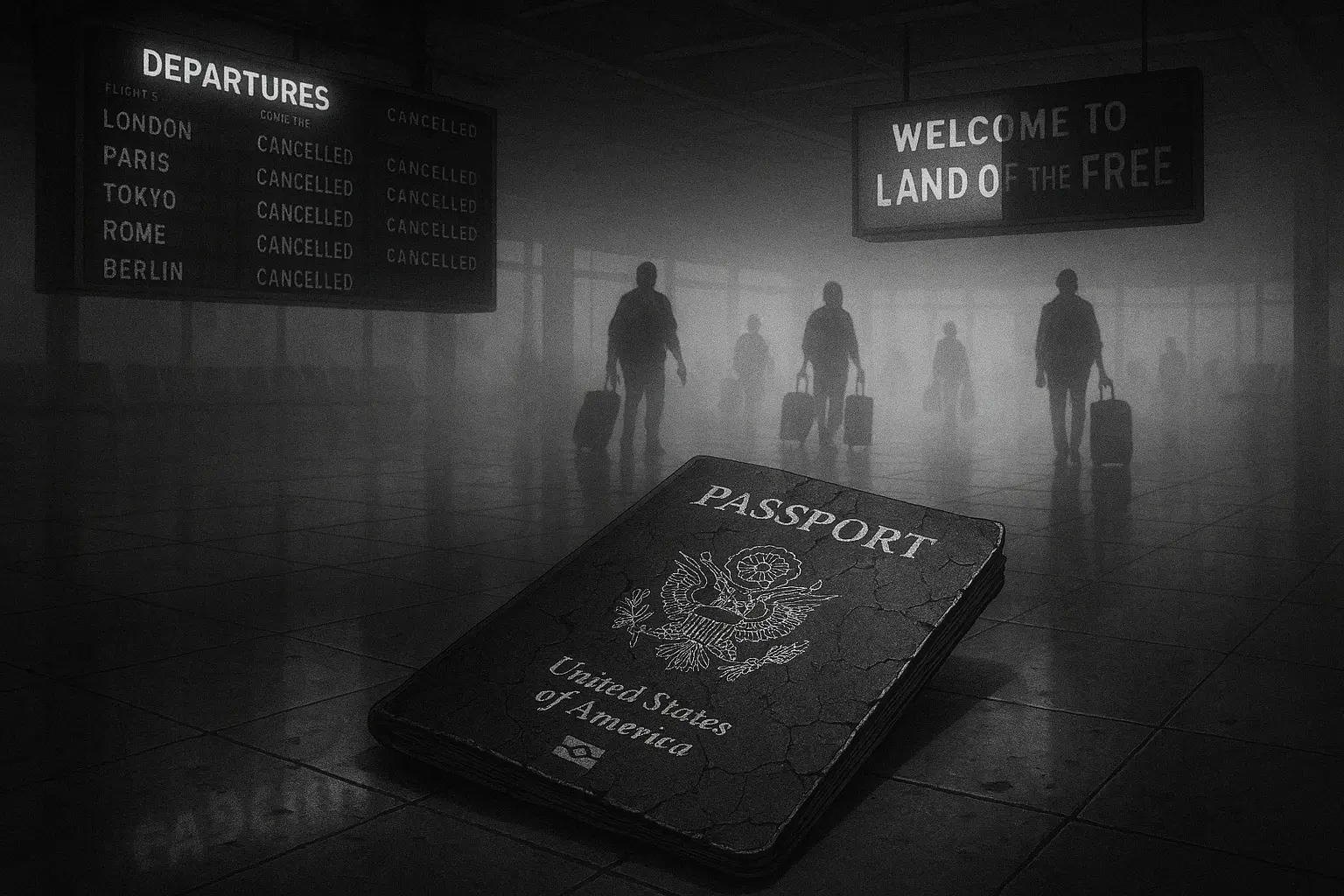
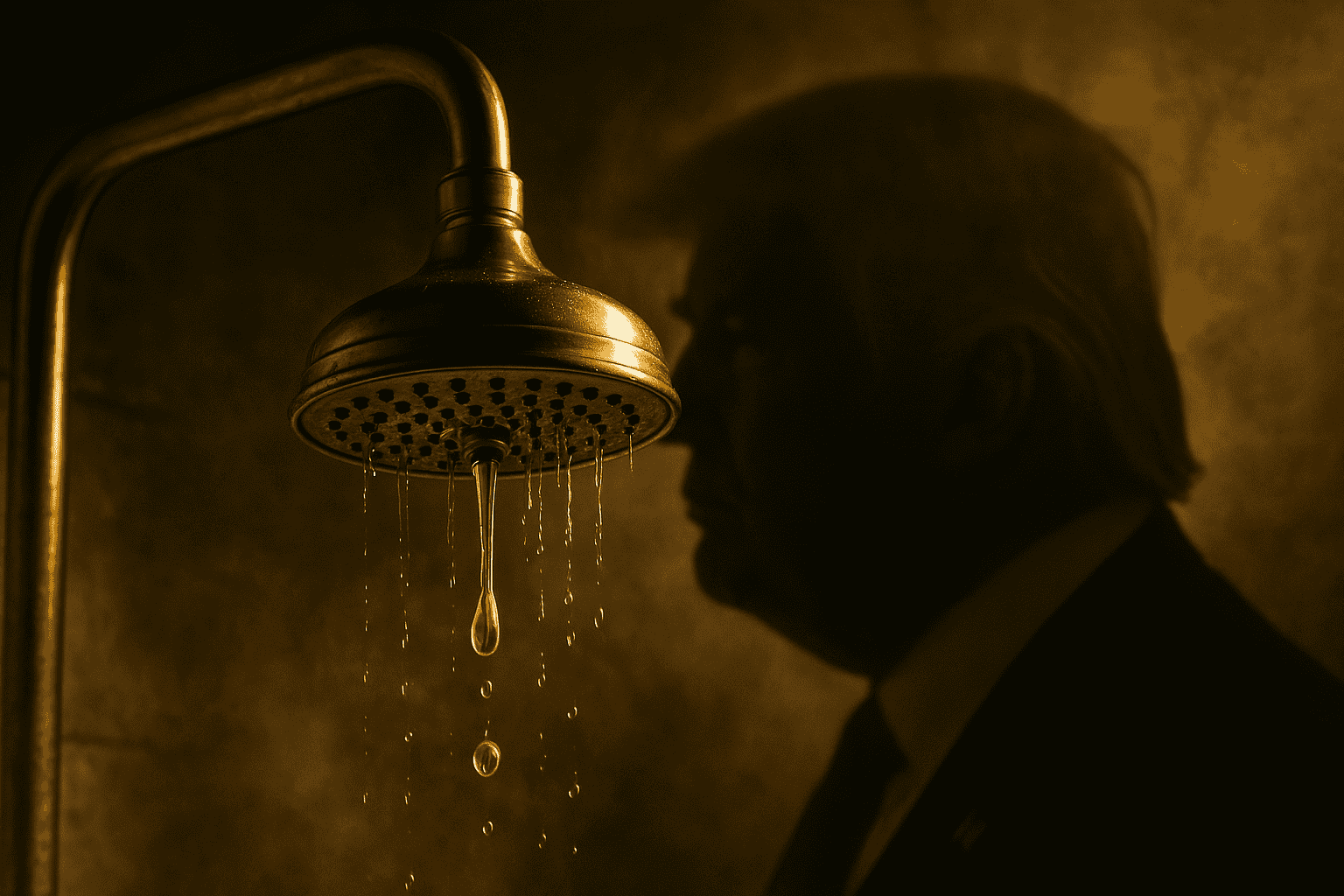

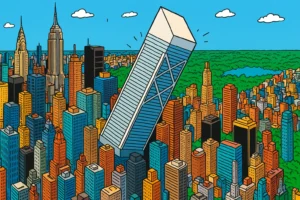
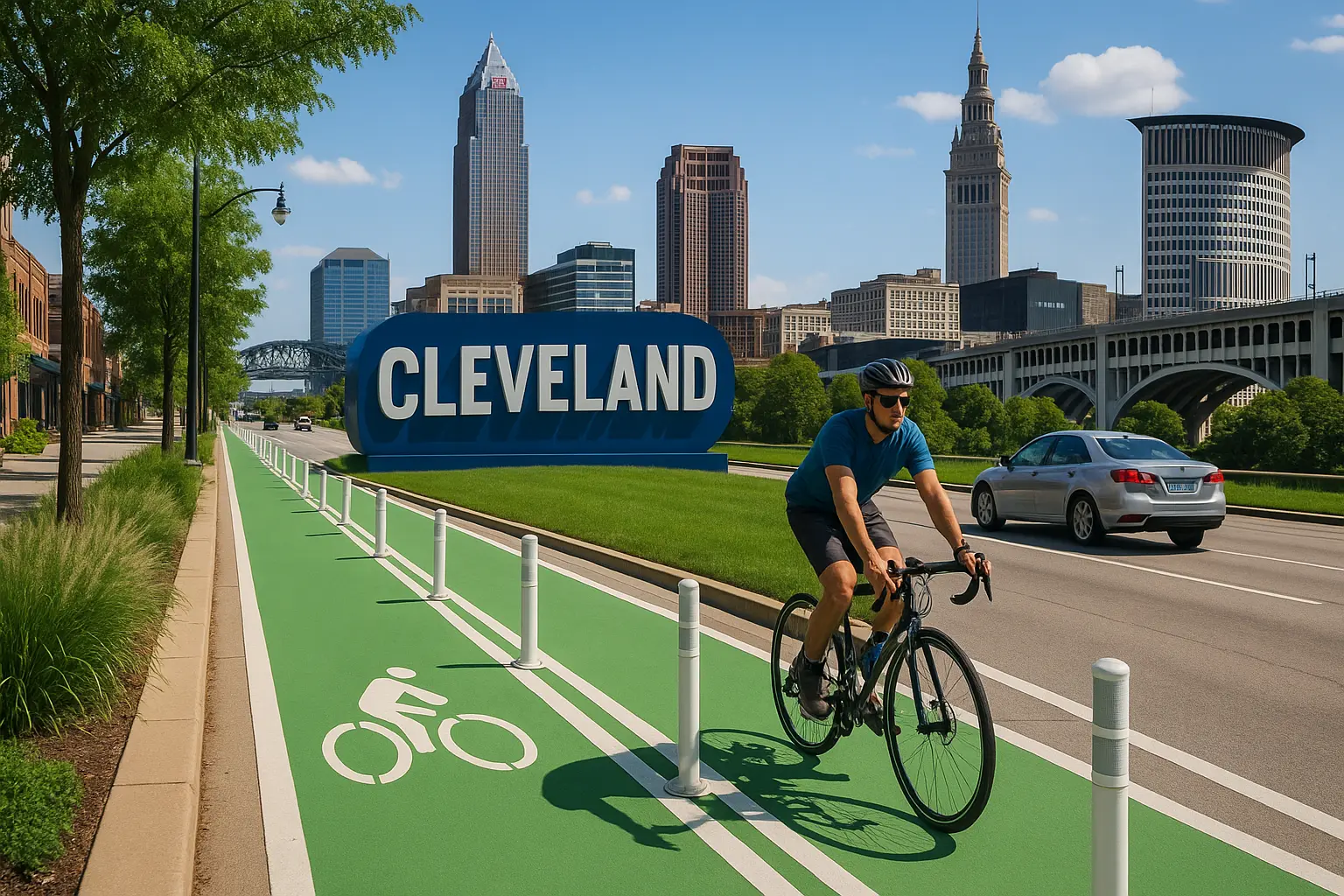

Post Comment